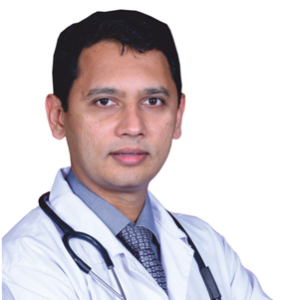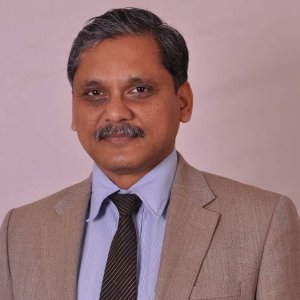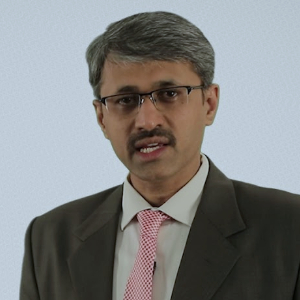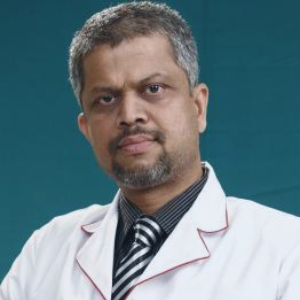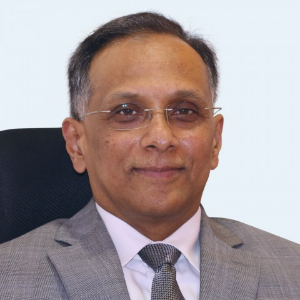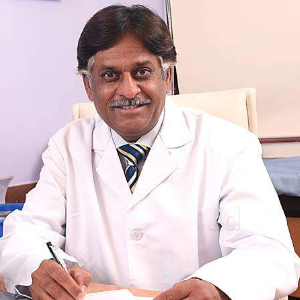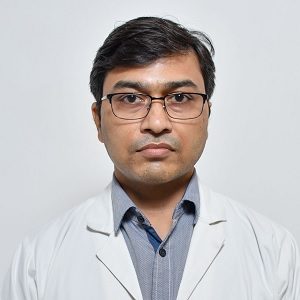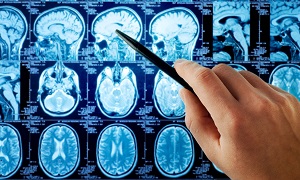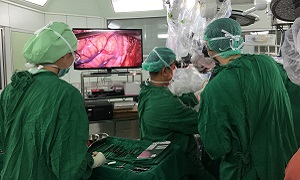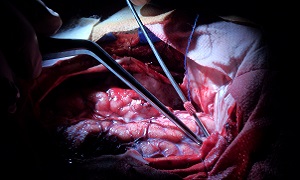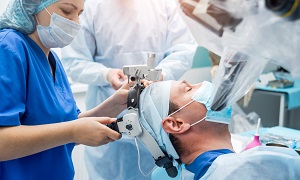Best Doctors in India for Brain Trauma Surgery
- Neurosurgeon, Bengaluru, India
- Over 22 years’ experience
- Gleneagles Global Hospital Bengaluru
Profile Highlights:
- Dr. Madhusudan H V is an expert Neurosurgeon in South India with 22+ years of experience in neuro and spine surgery.
- With a specialization in minimally invasive neurosurgeries, Dr. Madhusudan holds the credit for more than 7000 neurosurgeries. He also finds interest in endoscopic interventions and frameless navigations.
- Neurosurgeon & Spine Surgeon, Bengaluru, India
- Over 20 years’ experience
- Fortis Hospital Banerghatta Bengaluru
Profile Highlights:
- Dr. Prahraj S S is a leading Neurosurgeon who specializes in all types of neurological surgeries and has performed over 6000 neurosurgeries till date along with complex cranial and spine surgeries.
- He is one of the most renowned neurosurgeons in the country and has provided his services to some of the premier medical institutes in India such as NIMHANS where he performed a large number of spinal surgeries.
- Neurosurgeon & Spine Surgeon, Bengaluru, India
- Over 15 years’ experience
- Gleneagles Global Hospital Bengaluru
Profile Highlights:
- Dr. Praveen K S is a highly qualified neurosurgeon with over a decade of experience in handling all kinds of neurological diseases and disorders.
- He specializes in Pediatric Neurosurgery, Neuro-Oncology, Endoscopic neurosurgery, Aneurysms, and Neuro- Trauma and has performed over 4000 neurosurgeries in his career.
- Neurosurgeon & Spine Surgeon, Mumbai, India
- Over 20 years’ experience
- Wockhardt Hospital Mumbai
Profile Highlights:
- Dr. Rahul Modgi is a highly established neuro and spine surgeon in Mumbai specializing in all types of brain and spine surgeries.
- Dr. Rahul Modgi’s name has been recorded in the Limca Book of Records in 2014 when he removed the heaviest iron rod from the brain of a 17-year-old patient. He has also performed various other risky surgeries for which he has greatly appreciated.
- Neurosurgeon, Bengaluru, India
- Over 30 years’ experience
- Fortis Hospital Banerghatta Bengaluru
Profile Highlights:
- Dr. Rajakumar V Deshpande is a renowned Neurosurgeon in Bengaluru. He performed the first pedicle screw fixation surgery for a spine injury in Bangalore.
- Dr. D V Rajakumar specializes in endoscopic neurosurgeries and has performed some of the most complex brain and spine surgeries through the endoscopic approach. His other areas of interest include minimally invasive neuro surgeries, management of cerebrovascular diseases, and brain tumor surgeries.
- Neurosurgeon, Mumbai, India
- Over 20 years’ experience
- Gleneagles Global Hospital Parel Mumbai
Profile Highlights:
- Dr. Suresh Sankhla is an accomplished Neurosurgeon in Mumbai specializing in endoscopic neurosurgery and onco-neurosurgery.
- Dr. Sankhla acquired his training in neurosurgery under the guidance of the best trainers from well-known medical institutes and hospitals in Ireland, UK, USA as well as India.
- He has an equal interest in research and has published more than 100 articles, papers, and abstracts in renowned national and international peer-reviewed journals.
- Neurosurgeon, Gurugram, India
- Over 25 years’ experience
- Artemis Hospital, Gurgaon
Profile Highlights:
- Dr. Pawan Goyal is a renowned neurosurgeon in Gurugram with 25 years of experience.
- He gained expertise in endoscopic neurosurgery, minimally invasive spine and neurosurgery, all brain and spine tumors, head and spine injuries.
Best Brain Trauma Surgery Hospitals in India
Hospital Highlights:
- Apollo Hospitals is a private healthcare group in India, with its headquarters based in Chennai. Established in 1983 by Dr. Prathap C. Reddy, the group offers a wide range of medical treatments and services across various specialties.
- It is renowned for emphasizing innovation and utilizing cutting-edge medical technologies into patient treatment.
- Known as India’s first corporate hospital, Apollo Hospitals is often credited for pioneering the private healthcare revolution in the country.
- With clinics and hospitals located all throughout India, Apollo Hospitals is a nationwide healthcare organization. Its presence can also be found in foreign countries.
- Preventive health examinations, medical and surgical treatment, and diagnostic centres are just a few of the services that the Apollo group provides.
- The group has several centres of expertise, including Cardiac Sciences, Neurosciences, Orthopedics, Emergency Care, Cancer Care, and Organ Transplantation.
- City: Chennai, India
Hospital Highlights:
- RIMC is a multi-specialty hospital in a sprawling area of 36 acres located in Chromepet, Chennai, Tamil Nadu, India.
- The facility has 450 beds including 130 critical care beds, 9 operating rooms, modern reference laboratories and radiology services, and is conveniently located near road, rail and air transportation.
- RIMC is led and managed by world-renowned physicians committed to healthcare.
- RIMC offers the broadest range of clinical care, education, and research. The hospital offers state-of-the-art technology and modern treatment facilities designed to provide health care at an affordable cost.
- Rela Institute is driven by patient needs, comfort and confidence.
- City: New Delhi, India
Hospital Highlights:
- Fortis Hospital in Shalimar Bagh is a multi-super specialty hospital that strives to provide world-class patient care by leaving no stone unturned.
- Fortis, Shalimar Bagh, with 262 beds and a 7.34-acre footprint, provides the best level of medical care through its team of doctors, nurses, technicians, and management professionals.
- City: Bengaluru, India
Hospital Highlights:
- Established in 2007, the Apollo Hospitals Bangalore is a 300-bed multispecialty hospital situated in Bannerghatta Road, Bangalore.
- Equipped with the state-of-the-art technology, it is a leading hospital dedicated to providing healthcare needs to patients with compassion and expertise.
- It is the first hospital to have completed the highest number of Robot Assisted Heart Surgeries in India.
- Over the years, it has successfully conducted some of the rarest medical procedures such as spinal angiolipoma excision, autologous chondrocyte implantations, and tibial tuberosity shift with MPSL reconstruction.
- The Apollo Hospitals Bangalore has the reputation of performing the greatest series of airway stents in the country.
- Additionally, the hospital is known for providing comprehensive treatment in specialties such as gastroenterology, urology, gynecology, oncology, colorectal surgery, etc.
- The “The Minimal Access Surgery Centre” (MASC), one of Apollo Hospitals, Bangalore’s premier Centres of Excellence, is devoted to the use of minimally invasive surgical procedures.
- In 2013, THE WEEK-A C Nielsen, Best Hospital Survey ranked Apollo Hospitals Bangalore as the 2nd best multi-speciality hospital in Bangalore.
- City: Mumbai, India
Hospital Highlights:
- Gleneagles Global Hospital The 450-bed facility comprises of 17-stories, housing state-of-the-art infrastructure, and advanced medical care facilities.
- The hospital offers end-to-end clinical, surgical, and diagnostic services. It is equipped with a team of eminent medical professionals aided by qualified nurses and medical staff
- The Hospital offers advanced Endoscopic procedures, Hepatobiliary and Liver Surgeries, Surgical and Medical Gastroenterology, Bariatric Surgery, and Robotic surgery.
- The hospital is a center of excellence for Orthopedics, Joint Replacement, Knee Replacement, and Hip Replacement surgery.
- City: Hyderabad, India
Hospital Highlights:
- CARE Hospitals were established in the year 2000, by CARE Group.
- The multispecialty hospital has 435 beds, including 120 critical care beds, with an annual inflow of 180000 outpatients and 16,000 in-patients.
- The hospital provides specialty medical services in Cardiology, Cardiothoracic Surgery, Pediatric Cardiology, Pediatric Cardiothoracic Surgery, Neurology, Neurosurgery, Nephrology, and Urology.
- The hospital has the first dual source, 128 slice CT scanner (for high precision cardiac imaging) – the first of its kind in south India.
- The hospital offers a wide range of accommodation facilities for the convenience of its varied patient base, ranging from general wards to super deluxe rooms.
- City: Mumbai, India
Hospital Highlights:
- Fortis Hospital in Mulund is a 315-bed multi-speciality tertiary care hospital with five JCI accreditations that offers a wide variety of diagnostic and treatment services. The Fortis Hospital in Mulund delivers patient-centred treatment with cutting-edge technology, highly skilled and experienced surgeons, and paramedical staff.
- This institution houses Maharashtra’s largest multi-organ transplant centre. It is also the first heart transplant centre in western India to conduct 100 or more consecutive heart transplants in under four years. It is the only hospital in the city to have multi-organ transplants and has handled the youngest patient for angioplasty. Fortis Hospital Mulund now boasts the first advanced surgical robot in central Mumbai.
- Cardiology and heart surgery, urology, nephrology, neurosciences, orthopaedics, digestive care, emergency and critical care, and maternity care are among the services provided by the hospital.
- City: New Delhi, India
Hospital Highlights:
- Manipal Hospitals, Dwarka, is a super-specialty hospital in Dwarka, New Delhi, which is a part of Manipal Hospitals Group.
- The hospital aims to provide the best treatment on par with international standards at a fraction of the cost.
- Equipped with 380 beds, the hospital is also one of the new age hospitals which are equipped fully with state-of-the-art infrastructure, cutting-edge technology as well as the latest and advanced clinical practices. The hospital also has 13 modular Operation theatres with 118 beds which are solely meant for critical care.
- The hospital comprises internationally acclaimed doctors and highly professional and experienced hospital and medical staff who are able to provide preventive, therapeutic, and diagnostic services all under one roof.
- City: Chennai, India
Hospital Highlights:
- Located in Chennai, India, MGM Healthcare is a top multispecialty hospital that provides all medical services under one roof.
- Since its founding in 2019, MGM Healthcare has quickly become a leading national referral centre, creating several innovative flagship initiatives.
- MGM Healthcare combines next-generation medical and digital technologies to provide better patient results.
- With 12 centres of excellence, more than 400 inpatient beds, 100 intensive care unit beds, and 24/7 emergency care, MGM Healthcare leaves no chance in redefining the patient experience in Chennai.
- MGM Healthcare boasts 250+ expert doctors across 30+ departments, including Cardiology, Pulmonology, Neurology, Obstetrics & Gynaecology, and more.
- They house 12 specialized Centres of Excellence, including Neurosciences, Orthopaedics, and Multi-Organ Transplantation.
- Their team of doctors, nurses, and paramedics works together to give every patient individualized treatment.
Hospital Highlights:
- Lilavati Hospital & Research Centre is India’s premier multi-speciality tertiary care hospital and has been recognised as a global medical excellence centre.
- Lilavati Hospital & Research Centre has built an unrivalled level of trust with its patients over the years, thanks to a solid foundation that comprises cutting-edge facilities, the best medical competence, research, education, and charity endeavours.
- The hospital is quite proud of the fact that it now serves patients from all kinds of backgrounds, not just from the United States but from all around the world.
- The hospital has a total of 323 beds, one of the largest Intensive Care Units (ICUs), 12 Operation Theatres with modern amenities, over 300 consultants, and almost 1,800 personnel.
Traumatic Brain Injury
Symptoms
Depending on the type and location of the injury, a person suffering from a traumatic brain injury can show the following symptoms:
- Loss of consciousness
- Feelings of depression
- Seizures
- Confusion and disorientation
- Memory loss / amnesia
- Sleep disturbances
- Dizziness/loss of balance
- Fatigue
- Headaches
- Visual problems
- Poor attention / concentration
- Irritability / emotional disturbances
- Vomiting
If you or your child has received a blow to the head or body, that concerns you or has lead to any behavioral changes, then you should see a doctor immediately. Seek emergency medical care if there are signs or symptoms of traumatic brain injury after a recent blow or another traumatic injury to you or your child’s head.
Causes
Traumatic brain injury is caused due to a blow or other traumatic injury to your head or body. The degree of damage might depend on several factors, which include the nature of the injury as well as the force of impact.
Common events that generally lead to traumatic brain injury can include the following:
Falls- If you fall from your bed, a ladder, in the bath, or down the stairs, it can cause traumatic brain injury. It is the most common cause overall, among older adults as well as young children.
Violence- Gunshot wounds, domestic violence, child abuse, and such assaults are also common causes. A shaken baby syndrome is a traumatic brain injury that can happen to infants if they are shaken violently.
Sports Injuries- Sometimes a traumatic brain injury can also result from sports such as soccer, football, boxing, baseball, skateboarding, hockey, etc. These are common mostly among the youths.
Collisions- Collisions involving cars, motorcycles, bicycles, or pedestrians, can also lead to traumatic brain injury.
Explosive blasts or combat injuries- Among military personnel, explosive blasts are a common cause of traumatic brain injuries. It is still, however, not understood, how the damage occurs, but according to many researchers, the pressure waves passing through the brain can significantly disrupt brain function.
Traumatic brain injury can also be a result of penetrating wounds, severe blows to the head, or falls or bodily collisions with any objects following a blast.
Diagnosis
When a person is brought to the emergency room with a head injury, doctors try to learn as much as they can about the symptoms, as well as the cause and extent of the injury.
A GCS or Glasgow Coma Score is a 15-point test that is used to grade a patient’s level of consciousness. This test helps doctors assess how responsive and conscious a patient is.
Next, diagnostic imaging tests are performed, which can include the following:
Magnetic Resonance Imaging (MRI)
Computed Tomography (CT)
Magnetic Resonance Spectroscopy (MRS)
Treatment
In mild cases of traumatic brain injury, rest and medication might be enough to relieve headaches.
Medications can include anti-seizure drugs or coma-inducing drugs, etc.
However, in severe cases, surgery may be required, to address the following problems:
Repairing skull fractures
Removing clotted blood (hematomas)
Bleeding in the brain
Opening a window in the skull
Surgery can also be used to relieve pressure inside the skull by draining accumulated cerebral spinal fluid or creating a window in the skull that helps to provide more room for swollen tissues.
Most people having a significant brain injury can require rehabilitation. They can relearn basic skills, such as walking or talking. This helps to improve their abilities while performing daily activities.
Complications
Immediately or soon after a traumatic brain injury, there might be several complications. The more severe the injury is, the higher the chances of greater complications.
A person can fall into a coma, where he/she is unaware of anything and unable to respond to any stimulus. A person can also fall into a vegetative state, where a person may open his or her eyes, though he/she is unaware of his/her surroundings. A vegetative state can also become permanent, though generally, individuals progress to a minimally conscious state. In a minimally conscious state, there are signs of self-awareness.
However, when there is no measurable activity in the brain and the brainstem, this is known as brain death. This condition is considered irreversible.
There might be physical complications as well, such as seizures, infection, hydrocephalus, blood vessel damage, headaches, or vertigo. These symptoms may last for a few weeks to a few months, after a traumatic brain injury.
Sometimes, traumatic brain injuries at the base of your skull can cause nerve damage to the nerves that emerge directly from one’s brain, i.e. the cranial nerves. If these nerves are damaged, it can result in:
- Paralysis of facial muscles or loss of sensation in the face
- Loss of or altered sense of taste
- Loss of vision or double vision
- Loss of or altered sense of smell
- Problems while swallowing
- Ringing in the ear
- Dizziness
- Hearing loss
Many people who suffer a significant brain injury can show cognitive problems, such as problems in memory and learning new things. Some people can problems while solving problems or multitasking.
Problems with communication are also common following a traumatic brain injury. Many people also experience changes in behavior and emotion.
According to research, it has also been suggested that repeated or severe traumatic brain injuries can increase the risk of degenerative brain diseases.
A degenerative brain disorder causes gradual loss of the functions of the brain. These disorders include Alzheimer’s disease, Parkinson’s disease, etc.
Prevention
To reduce the risk of brain injury, follow these tips:
Seat belts and helmets- If you are driving or riding in a car, always remember a seatbelt. In case of a bicycle or motorcycle, remember to put on a helmet. Helmets are also important during certain sports such as baseball and snowboarding.
Alcohol and Drug Use- It is important not to drive under the influence of alcohol or drugs. Prescription medications can also impair one’s ability to drive.
To prevent falls around the house, follow the following tips:
- Install handrails in bathrooms
- Put a nonslip mat in the bathtub or shower
- Remove area rugs
- Install handrails on both sides of staircases
- Get regular vision checkups
- Get regular exercise
- Improve lighting in your house
- Keep stairs and floors clear of any clutter
The following tips can help your child avoid any head injuries:
- Install safety gates at the top of the stairways
- Install window guards to prevent falls
- Put a nonslip mat in the bathtub or shower
- Keep stairs clear of any clutter
- Use playgrounds that have shock-absorbing materials on the ground
- Make sure area rugs are secure
- Don’t allow your child to play on fire escapes or balconies

